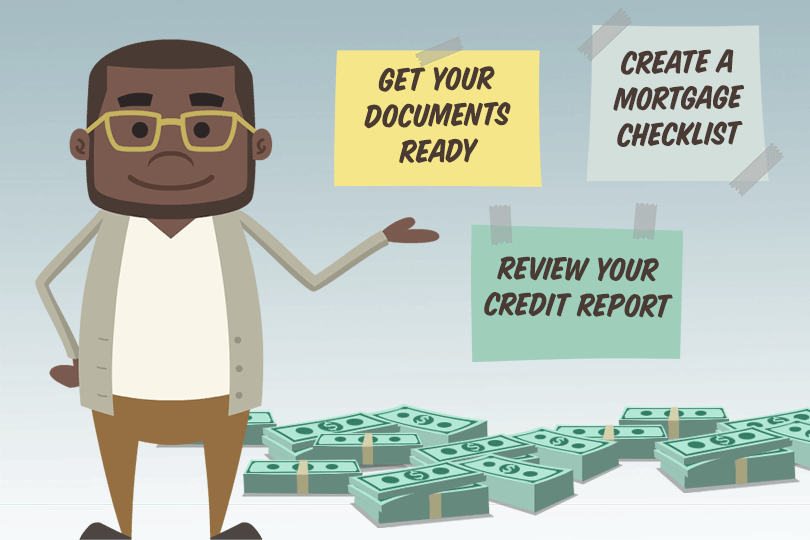Planning and Saving for a New Home
February 7, 2023
This large, upfront cost of buying a house is what keeps many potential homebuyers in a renter’s trap, that is when they don’t can’t put away money for a down payment because most of their income is going towards paying rent.
While it can seem overwhelming, there are ways to start saving and getting out your apartment.
Figure Out How Much to Save
The best way to get anything done is having a measurable goal to work toward. So, your first step needs to be determining how much money you’re going to put down on a home. This starts with setting a budget on the purchase price, and then deciding on a percentage for the down payment.
For example, say you have capped your budget at $200,000 for a new house. Now determine how much of that price can you pay down. To avoid paying the private mortgage insurance on a conventional loan, you’ll need to pay at least 20% of that price up front, which in this case would be $40,000. You can also look at more affordable options, like FHA home loans, that allow borrowers to pay 3.5% of as down payment. Just keep in mind that you will have to pay a mortgage insurance premium with that as well.
Once you have a number in mind, calculate how long it will take you to save up. Attempt to save the goal amount within 24 months, so you can start saving for other expenses as well. Set up a separate savings account, and start putting money away.
Cut Down on Expenses
This may sound impossible at first, but it is completely within your ability to get rid of certain spending habits. If you take the time to look at your monthly expenses, you’ll see so many places where you can cut back and save. Here are just a few examples:
- Instead of splurging on new clothing every month, buy one new item every 3 months.
- Only buy generic store brands for groceries.
- Don’t eat out, unless it’s a special occasion.
- Cancel your gym membership and do home workouts.
- Buy coffee in bulk and make it at home.
Many people choose to be responsible and start saving for retirement early in their careers. While this is a great way to lessen stress in the future, it might help to press pause while you are saving for a down payment. Instead, take whatever percentage you save for retirement every month and start placing it in a separate account for the down payment. This is only temporary, and shouldn’t last more than two years. Once you’ve met your down payment goal, you can go back to adding to your retirement account.
Think of Additional Income Sources
The truth is that saving for a down payment takes work and dedication, which means that in addition to cutting back on expenses, you may need to look at cutting back on free time and leisure as well. Think about skipping your annual summer vacation for one year and putting the money into your savings account. You can also utilize your free time to picking up a second job.
There are a number of ways you can earn a little extra cash by doing simple things in your wheelhouse. Look into part-time jobs, such as tutoring or babysitting. If you’re good at making something, look into selling it online! There are a bunch of ways you can bring in some more money every month if you put in the time.
------------------------------
RELATED VIDEOS:
There's a Difference Between APR and Interest Rates
Choose Your Mortgage Lender Carefully
Getting Started With Your FHA Loan Application

FHA Loan Articles
April 28, 2025Home loans have various expenses that aren't apparent to a new borrower until much later in the process. What do you need to consider when making your home loan budget? It might not be complete without addressing some of the issues we cover here.
April 23, 2025 While the prospect of lower interest rates or more favorable loan terms can be enticing, there are situations where waiting is the better option. Refinancing without carefully considering your current financial circumstances is never a good idea, but careful planning in the current financial environment is even more important.
April 22, 2025First-time home buyers worry about loan approval, but there are important steps to take to increase the likelihood that the lender will approve their application for the loan or pre-approval. What do you need to know before you choose a lender?
April 16, 2025There are smart uses for cash-out refinancing loan proceeds and uses for that money that may work against the borrower. We examine some of those choices below, starting with using an FHA cash-out refinance for investment purposes. Is this a good idea?
April 15, 2025House hunters sometimes face a curveball when the appraisal for a home they want to buy with an FHA mortgage is lower than the offer. Is this a deal-breaker? Believe it or not, it isn't the end of the road. A low appraisal can sometimes be just a bump in the road. In other cases, you may wish to walk away from the deal. Here's your game plan to navigate this situation...







